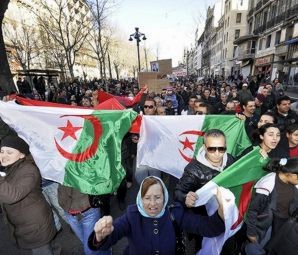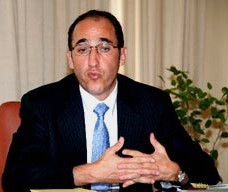|
Algeria Politics | Economy - Development Algeria "must reduce oil dependence" to avoid unrest
In an open-hearted interview, Joël Toujas-Bernaté, the mission chief of the International Monetary Fund (IMF) in Algeria, warns of "underlying tensions" that could lead to a similar development as in Tunisia - a popular uprising ousting the government.
He, in agreement with Algerian authorities, holds that the country's major challenge remains unemployment, which remains high, especially among the youth. "I should stress that Algeria has come a long way - a decade ago, youth unemployment exceeded 50 percent. Nevertheless, 21 percent unemployment among the young today remains very high." Unemployment has been reduced through massive economic growth - mostly oil-driven - during the last decade. Demographic trends had "played an important role" in keeping the unemployment rate high. "The Algerian population is young and rapidly growing, so Algeria needs much higher growth to be able to absorb new entrants in the labour market," Mr Toujas-Bernaté holds. "The labour force is growing between 2˝ to 3 percent per year. Just to stabilise unemployment and absorb all the new entrants, Algeria probably needs growth in the non-hydrocarbon sector of at least 5 percent," according to the IMF analyst's calculations. Mr Toujas-Bernaté, in the interview conducted by 'IMF Survey', however emphasised that Algerian authorities were aware of and addressing the country's socio-economic problems, including seeking to diversify the economy. By staff writer © afrol News - Create an e-mail alert for Algeria news - Create an e-mail alert for Politics news - Create an e-mail alert for Economy - Development news
On the Afrol News front page now
|
front page
| news
| countries
| archive
| currencies
| news alerts login
| about afrol News
| contact
| advertise
| español
©
afrol News.
Reproducing or buying afrol News' articles.
You can contact us at mail@afrol.com









